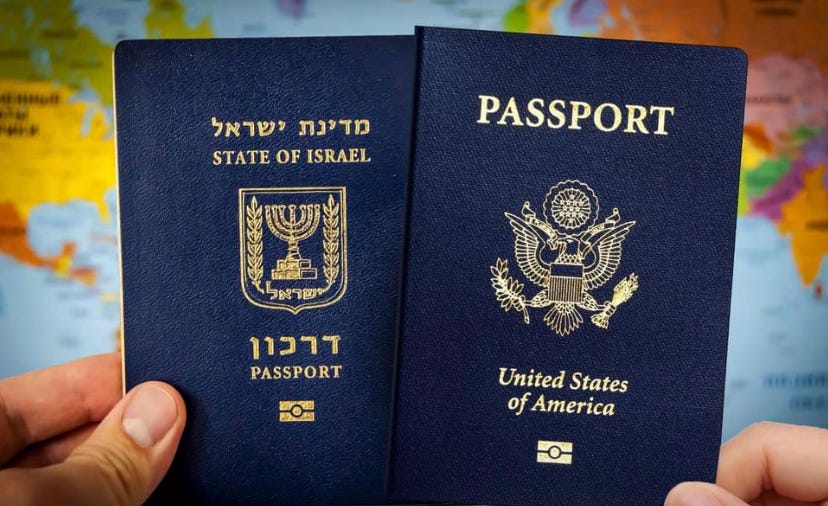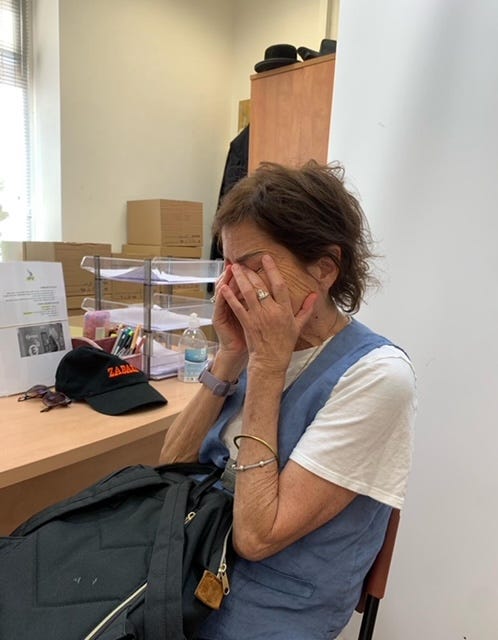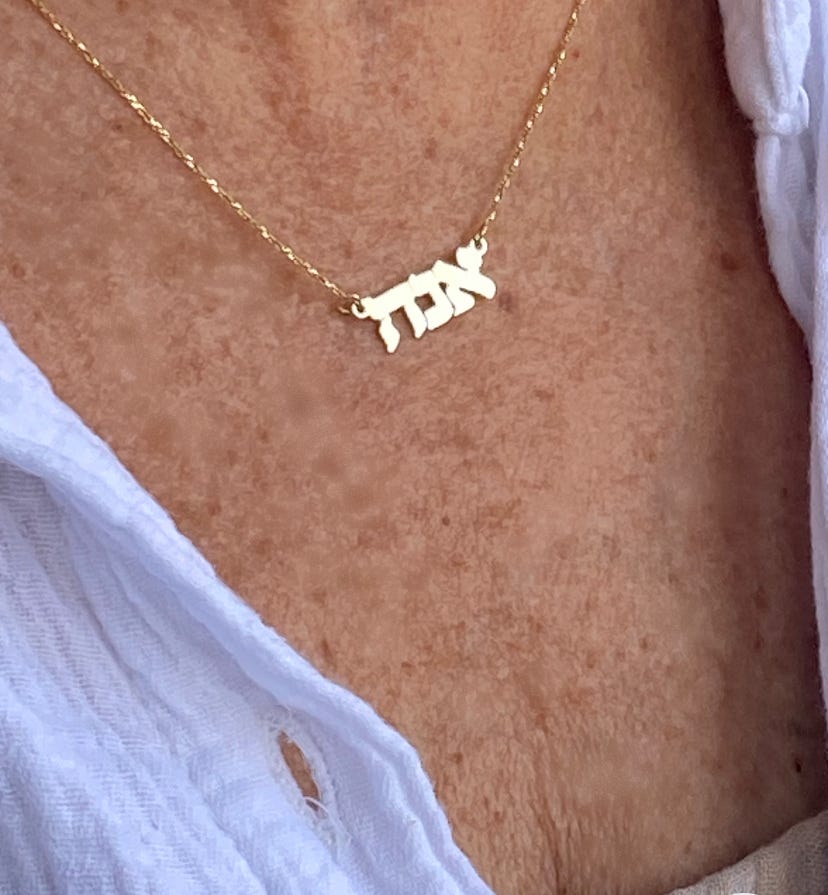New Name, Fair Game
What's in a Name? Everything.
Driving from Tel Aviv to Jerusalem on Highway 1, you leave the city’s modern skyline behind and the cityscape gradually gives way to open fields and rugged Judean Hills. Approaching Jerusalem, the elevation increases, offering views of the city's ancient walls and skyline before you enter the bustling, historic city. Eventually we arrived to a small, easy-to-miss office on Shlomzion Hamalka 1, the Ministry of Interior.
My goal was to change all three of my names: Anne to Anna, eliminate Irene (which was mistakenly written as Iran in my Israeli passport), and finally, to reclaim Kopolovič.
My father’s original last name was Kopolovič. He was born in Czechoslovakia. He changed it when his brother changed his name to Koplin. He felt it was important to have the same last name as his only brother. They were the last surviving members - except for his sister, who took her husband’s name - of the Kopolovič family. Everyone else had been murdered. My dad was never fond of Koplin, “it means nothing.”. Kopolovič carries a sense of history and heritage, a connection to where we came from. The symbol above the c is called a háček to show the letter has a different pronunciation. In this case, it is pronounced Kopolovich.
The name Anne had to go too. I was named for my dad’s mother, Hannah. The name means ’grace’. Israelis pronounce it “On.” Anna (pronounced Ah-Nah, with accent on the Ah) is so much more elegant. You do realize my first name has gone from Ann at birth, to Anne when I lost my virginity, and now to Anna😀.
Any Israeli citizen can change either their first name or surname at the Ministry of Interior and the resulting name change will then be recognized in all official documents such as: ID card, passport, bank records etc. A name change is allowed every 7 years and must be done in person.
I braced myself for the worst, convinced I would be missing that one crucial document. We have all broken down in tears at the Ministry of Interior—it's practically a rite of passage for making aliyah. Back in the day, we had to line up in the dead of night just to get a number for a morning appointment. It's more organized now. In Tel Aviv, it can still take up to two years to get an appointment, hence we went to Jerusalem. My sister, ever the optimist, thought we could cut through this bureaucracy - “we’ll kill them with kindness!” But navigating the system is more about endurance and strategy than simple goodwill. Known for its vibrant tech sector and innovation, Israel’s bureaucracy still has issues like complex regulatory frameworks and slow-moving governmental processes.
On top of the usual going-to-government-office angst, I questioned my ability to physically handle the trip. I had been out of the hospital for 2 days. I had fears of managing the steps, falling on the infamous slippery Jerusalem stone, the inability to find a bathroom. Will there be a high step to get in the light rail? Is there an elevator at the train station? Is it too hot?
Despite the well-meaning concerns and protests of those around me who argued that it might be too soon for traveling and dealing with bureaucratic BS, I felt a sense of urgency. I had been yearning for this change for so long. Read this old blog post.
It was not nearly as bad as anticipated. I barely had time to settle into the seat before my number was called. The small office was a sanctuary of calm and professionalism, and the entire process felt incredibly civil. I answered all of the questions with ease—except for one, the year I made aliyah - who remembers? After the fingerprints and picture, the official declared, “We are all done, Anna.” A wave of emotion crashed over me, and I melted.
I found out, after the fact, that in the Jewish faith, changing one’s name after an illness is encouraged. When my friend told me this I asked him to provide sources, as I had never heard of this. It is indeed supported by various aspects of Jewish religious thought and mystical beliefs, primarily Kabbala). This practice is seen as a way to symbolically start anew and invite positive changes in one’s life.
For me, this name change was not about seeking a new beginning. Nor does it reflect my usual superstitiousness. My new name signifies a deep connection to my ancestry. It affirms my identity and helps me move forward with greater courage and grace—a personal ritual of empowerment.
Readers may be wondering “what do I call you now?’” Anything goes; I’m still Anne, Annco, Koplin. I will call myself Anna. For clarification, these changes are limited to Israeli government documents. My American legal documents remain unchanged for now.
At 9:48 AM, our actual scheduled time, on July 4th, my sister and I walked out onto the ancient stone street, beaming with pride. Our first stop was the Baltinester Jewelry store, a place we used to shop in the 1970s for necklaces with our names in Hebrew. And here I was, 40 years later, ordering a necklace with my new Hebrew name. Life, in its beautiful way, had come full-circle.
Have a courageous week,
Anna Kopolovič🎗️






Two beacons!
This post has so much in it. It captures a very special, memorable day beautifully. Kol hakavod, אנה!